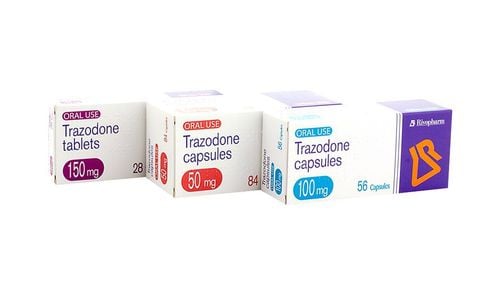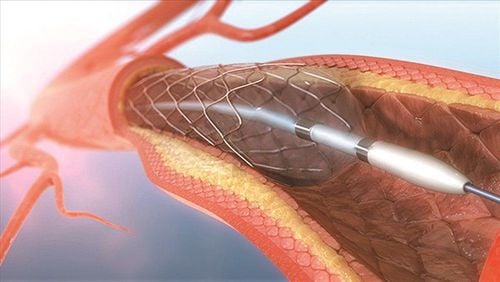You might think of vitamin D like other vitamins such as vitamin C or vitamin B. However, vitamin D is unique in that it acts more like a hormone than a vitamin. Your vitamin D levels decrease as you reach menopause, potentially causing many menopausal symptoms. Vitamin D helps absorb calcium and build bones, but it is also involved in many other processes that protect you from diseases and health issues.
1. Why Women Need Vitamin D
Vitamin D can be considered a hormone that your body naturally produces to help maintain a healthy balance of mental, emotional, and physical well-being. Without it, you may experience hormonal imbalances such as:
- Estrogen Imbalance: Vitamin D deficiency can lead to lower estrogen levels, causing depression, hot flashes, mood swings, and more.
- Parathyroid Hormone Imbalance: Vitamin D deficiency limits the body's ability to regulate calcium levels controlled by the parathyroid gland. Lower calcium regulation increases parathyroid production.
- Pituitary Gland Imbalance: Abnormal growth of pituitary cells—and thus pituitary tumors—can result from vitamin D deficiency.
- Testosterone Imbalance: Vitamin D deficiency in women reduces testosterone production, leading to fatigue, weight gain, mood changes, hair loss, etc.
Therefore, for women in perimenopause or menopause who start experiencing deficiencies in sex hormones like estrogen, supplementing with vitamin D is extremely important.
2. Vitamin D Levels and Menopausal Symptoms
Many women experience menopause-related symptoms long after their last period. For example, women often have hot flashes for 4 to 10 years after menopause. Many also experience mood disorders, although the link to menopause is less clear. These symptoms can be severe enough to negatively impact quality of life, work performance, and personal relationships. Current treatments for menopause-related symptoms, such as menopausal hormone therapy, antidepressants, and anticonvulsants, can have significant side effects and serious long-term adverse consequences. After stopping treatment, symptoms may recur or even develop into diseases. Understanding the underlying mechanisms of menopause-related symptoms can lead to the development of new treatment strategies.

Studies on calcium balance have shown that calcium absorption decreases during menopause. Since vitamin D enhances calcium absorption and appears to be hormone-sensitive, it may also affect vasomotor symptoms, which are clearly related to hormone levels. Additionally, some symptoms related to vitamin D deficiency, such as mood disorders and musculoskeletal symptoms, are similar to those that women may experience during the menopausal transition. Therefore, vitamin D levels may be related to menopause-related symptoms.
Several small studies conducted on middle-aged women using aromatase inhibitors (AIs) for breast cancer have shown that while hot flashes with AI therapy differ from vasomotor symptoms related to menopause, breast cancer patients with higher vitamin D levels (> 66 ng/ml) experienced fewer hot flashes and other symptoms compared to women with lower vitamin D levels.
There is some biological data suggesting that the link between vitamin D and menopause-related symptoms is legitimate. Vitamin D may protect against serotonin depletion in experimental mice and serotonin depletion during menopause, a neurotransmitter involved in thermoregulation, which may contribute to hot flashes. Additionally, estrogen increases the activity of the enzyme responsible for activating vitamin D, and thus, the reduction in estrogen levels during the menopausal transition may lead to vitamin D deficiency symptoms. Indeed, vitamin D supplementation can improve mood in non-menopausal individuals.
3. Benefits of Vitamin D Supplementation in Menopausal Women
If you are a woman in your 30s, 40s, or 50s, it's time to think about vitamin D. This small vitamin plays a central role in many bodily processes and is on the list for women during menopause. Besides reducing menopausal symptoms, studies have shown its benefits in preventing heart disease, osteoporosis, diabetes, cancer, and weight gain. Here are some effects that vitamin D can help treat or prevent:
3.1. Osteoporosis
Since vitamin D is crucial for your body to use calcium and build bones properly, women over 40 or those with risk factors for osteoporosis should ensure adequate vitamin D intake. The combination of calcium and vitamin D is preventive and therapeutic for osteoporosis.
3.2. Cancer
More than a thousand studies have shown the link between vitamin D and the prevention of nearly 30 types of cancer, especially colon, prostate, and breast cancer. Among these, perhaps the strongest support for adequate vitamin D levels comes from its link to not only reducing the risk of colon cancer but also reducing malignant progression in existing cancers.
Vitamin D deficiency can lead to an increased risk of cancer, and we know that some cancer treatments may be less effective in the case of vitamin D deficiency, such as rituximab used for blood-related cancers being less effective in those with low vitamin D levels.

3.3. Depression
Vitamin D has been shown to have a positive impact on mood and low cognitive performance. Since mood symptoms often occur during menopause, anything that helps minimize mood troubles is worth considering. If you have seasonal affective disorder (SAD) and notice your mood is low in winter, you might want to increase your vitamin D intake during those dark months.
3.4. Diabetes
Adequate vitamin D levels seem to be closely linked to your body's ability to use insulin. Many studies have found that low vitamin D levels lead to reduced insulin release in the body, insulin resistance, and type 2 diabetes. In other words, vitamin D not only makes your body use insulin more effectively but also seems to prevent or minimize both type 1 and type 2 diabetes. Some studies are currently examining the potential causal relationship between low vitamin D levels and diabetes.
3.5. Cardiovascular Disease
As estrogen begins to decline, women start to have the same risk of heart disease as men. Vitamin D plays a role in preventing heart disease, but research is mixed on its value. While vitamin D deficiency seems to be linked to cardiovascular disease, it's unclear why. Some studies have not connected vitamin D supplementation with improved cardiovascular risks.
If you are concerned about heart disease, talk to your doctor about what the latest research tells us about vitamin D and cardiovascular disease.
3.6. Hypertension (High Blood Pressure)
Vitamin D deficiency can affect your heart and blood vessels. Since high blood pressure is a symptom indicating your cardiovascular system is at risk, anything that reduces that risk can protect your heart. Studies have shown that vitamin D and calcium supplementation can lower blood pressure readings in those with hypertension. However, remember that everyone is different. Some people should not take calcium supplements, for example, those with a history of kidney stones should talk to their doctor before taking any supplements.
3.7. Obesity
For some reason, overweight women tend to have lower vitamin D levels. It is unknown whether low levels contribute to obesity or if obesity reduces these levels, but the correlation exists. Anything that helps you lose weight more easily benefits your overall health.
3.8. Other Health Conditions
Vitamin D has been studied for its role in treating and preventing other conditions, such as irritable bowel syndrome, muscle weakness, multiple sclerosis, osteoarthritis, celiac disease, other autoimmune diseases, fibromyalgia and chronic fatigue syndrome, chronic pain, asthma, and allergies.
Please follow the website here for more health care information that we will update regularly.
To arrange an appointment, please call HOTLINE or make your reservation directly HERE. You may also download the MyVinmec app to schedule appointments faster and manage your reservations more conveniently.
References: ncbi.nlm.nih.gov, healthline.com, sciencedaily.com












